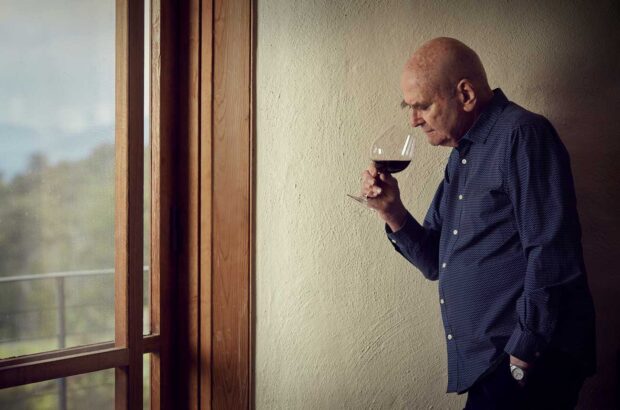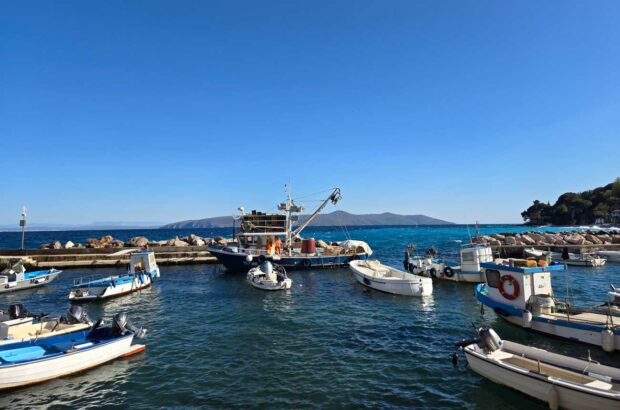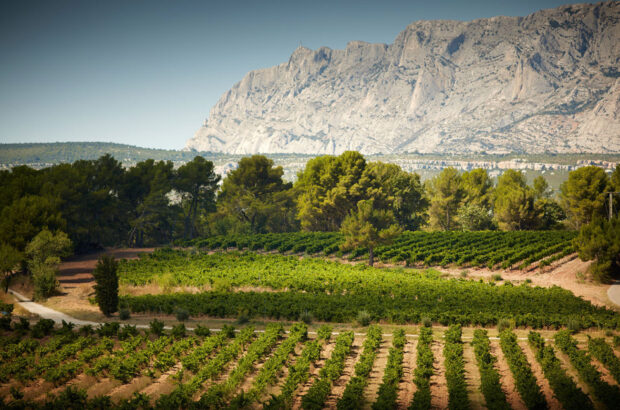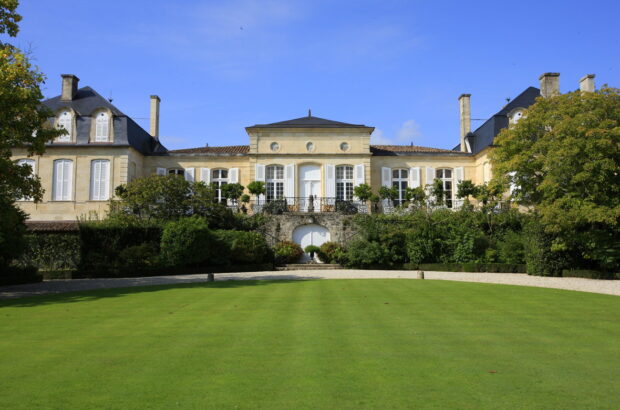After two weeks of judging in London, full results from Decanter World Wine Awards (DWWA) 2024 have been released, revealing a stellar performance from Greece – with a few surprises, too.
Since its inception, DWWA has consolidated its reputation as the largest and most influential wine competition in the world. Wine-watchers eagerly await the results of the awards each year because, as well as highlighting the best wines in the UK (and where to buy them), newsworthy stories and trends inevitably emerge.
This year, one of the most exciting stories is the ascendency of Greek wines. It isn’t going too far to say that, in 2024, Greece really is the word.
The results tally in, Greece laid claim to 296 medals, including two Platinums, 11 Golds and 111 Silvers. The really big story, though, is that a Greek retsina wine won a prestigious Best in Show, one of only 50 awarded this year, and making up just 0.28% of the 18,143 wines evaluated.
Scroll down to discover six top-scoring Greek wines from DWWA 2024
The Retsina revival
The Greece story notches up a gear when you consider that the competition’s ‘Top 50’ wine in question is produced with pine resin: Kechris Tear of the Pine Retsina 2022 (97 points).
DWWA Co-Chair Andrew Jefford said, ‘Eyebrows, we know, will be raised. What on earth is a retsina doing in the DWWA Best in Show selection?
‘In truth, eyebrows were raised every time this wine was tasted in the competition – because no one could quite believe that a resinated wine could be as subtle and as good as this. But subtle and good it is: pale gold in colour, with aromas that seem simply perfumed rather than dominated by resin.’
Retsina, made by adding small amounts of Aleppo pine resin to white (or sometimes rosé) wines during fermentation, has existed for thousands of years. The style most likely arose as a way sealing wine amphorae as they were transported around the Mediterranean. It gave the wine a piney, salty, tang – which people evidently developed a taste for, as the style survived for centuries longer than pure necessity dictated.
Yet, as a style retsina wasn’t often held in high regard, its resinous flavour believed to ‘mask’ poor quality wine. Now, a nascent retsina revival is calling time on that theory – as Tear of the Pine proves.
Jefford also pointed out that this is an unusual retsina. ‘Note that this is an oaked wine, and you’ll find as much soft oak and creamy lees on the nose as you will a resinous twang.’ Then there’s the choice of grape variety: 100 per cent Assyrtiko rather than the more usual Savatiano or Athiri.
Tear of the Pine was first released in 2005, after five years of experimentation. Winemaker Stelios Kechris explains how it’s made: ‘After pre-fermentation maceration and alcoholic fermentation in oak barrels of varying origins and types, selected fresh pine resin extracted from Pinos halepensis is added, followed by ageing for six to seven months on the lees. Finally, we bottle.’
It’s a style he describes as ‘a traditional product produced using innovative and modern practices’. He added, ‘Our aim is to showcase the unique qualities and characteristics of this wine style.’
‘The result,’ concludes Jefford, ‘is a triumph. We commend it to all open-minded readers.’
Assyrtiko rising
Retsina is not the only Greek success story. Wines made from the Assyrtiko grape – particularly those from the tiny, windswept island of Santorini from which this grape originates – won particular plaudits from judges.
Two standouts (Gavalas Winery, Natural Ferment, Santorini 2022 and Tselepos Canava Chrissou Vielles Vignes, Santorini 2021) claimed Platinum, both awarded 97 points.
Additionally, two Santorini wines from Estate Argyros – the lightly oaked Cuvée Evdemon 2020 and stainless-steel vinified Assyrtiko 2022 – were awarded Golds, with 96 and 95 points respectively.
On this Aegean island, grapevines are typically grown low to the ground in nest-like, basket-shaped koulouras, their roots thrusting deep into the volcanic soil in search of moisture during the long, dry summers.
Assyrtiko grown on the island is low-yielding, resulting in wines with concentration and intensity; a characteristic lick of briny-fresh salinity and razor-sharp acidity makes them as food friendly as they are vividly flavoured. It’s little wonder that Santorini Assyrtiko has gained such a following.
Victory is sweet: Vinsanto
Santorini-grown Assyrtiko goes beyond rapier-sharp, ultra-fresh styles.
The legendary dessert wine Vinsanto, lusciously sweet and concentrated, oak-aged and made in tiny amounts on the island, is the polar opposite. It is traditionally made from sun-dried grapes (at least 50% of which must be Assyrtiko) that are pressed, fermented, then aged in oak barrels for at least two years, eventually emerging with an intense sweetness that’s balanced by bracingly fresh acidity.
The Gold-medal winning (96 points) Artemis Karamolegos, Vinsanto, Santorini 2010 combines 85% old-vine Assyrtiko with 15% Aïdani. After ageing for a minimum of 90 months in French oak, its honeyed richness is underscored by hints of coffee and molasses.
These two tiny snapshots – retsina on the rise and the varied faces of Santorini Assyrtiko – are just small parts of the overall picture of what’s happening in Greece, but are emblematic of the increasingly confident winemaking mentality that is taking hold across the mainland and islands.
For wines that can truly surprise and excite in the glass, Greece really is the place to look.
Top-scoring Greek wines of DWWA 2024
Kechris, Tear of the Pine, Retsina 2022

97 Best in Show
Pale gold in colour, with aromas that seem simply perfumed rather than dominated by resin; note, too, that this is an oaked wine, and you’ll find as much soft oak and creamy lees on the nose as you will a resinous twang. On the palate, all those elements come irresistibly together, too. Another point to note is that the variety here is 100 per cent Assyrtico rather than the more usual Savatiano or Athiri, so the patient layering of oak, cream and pine comes atop a pure, upright and vividly acid-balanced wine which would be of no little interest in its own right. The result is a triumph. We commend it to all open-minded readers. Alcohol 13.5%
Gavalas Winery, Natural Ferment, Santorini 2022

97 Platinum
Staggeringly good wine: myriad aromas of orange blossom, lemon balm and stone fruit with evocative inflections of volcanic minerals and seaside salinity. Wonderfully crunchy with an oyster shell texture and vivid citrus acidity. Long and profound. Alc 14%
Tselepos, Canava Chrissou Vieilles Vignes, Santorini 2021

97 Platinum
A benchmark Assyrtiko exuding breath-taking aromas of fresh peach, pear and wild spring flowers which set the tone and intersperse nicely with the underscore of vibrant crushed stone minerals and spine-tingling bite of acidity. Magnificent! Alc 13.5%
Estate Argyros, Cuvée Evdemon, Santorini 2020

96 Gold
Gleaming with white peach, lemon posset and fresh lime blossom with a succulent salty mineral character and vibrant drive of citrus acidity which glides towards the finish line. Alc 15%
Estate Argyros, Assyrtiko, Santorini 2022

95 Gold
An intoxicating frisson of sea breeze, preserved lemon and floral notes which pervade the linear texture and steely backbone of acidity. Glowing with vibrance and verve. Alc 14%
Artemis Karamolegos, Vinsanto, Santorini 2010

96 Gold
The epitome of concentration encompassing dark raisined fruit, candied mango, frankincense and milk chocolate with an engaging mineral freshness which unfolds towards the end. Absolutely stunning. Alc 10.8%







